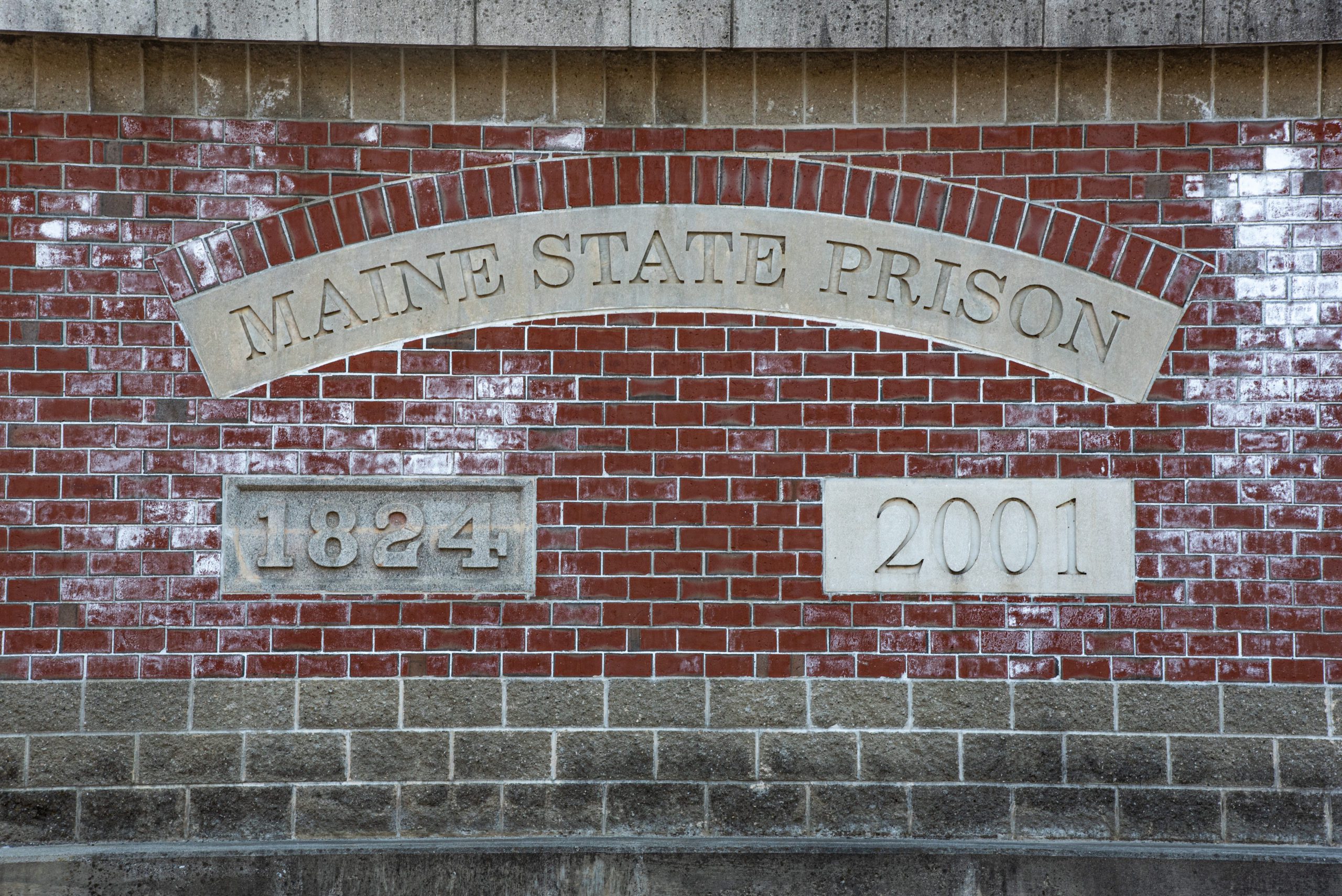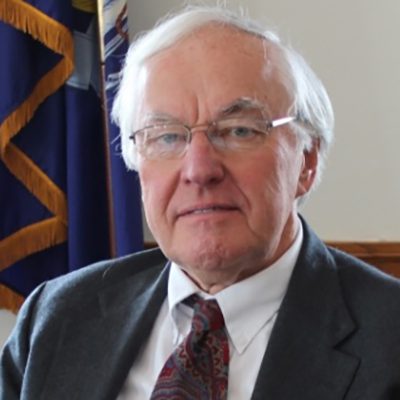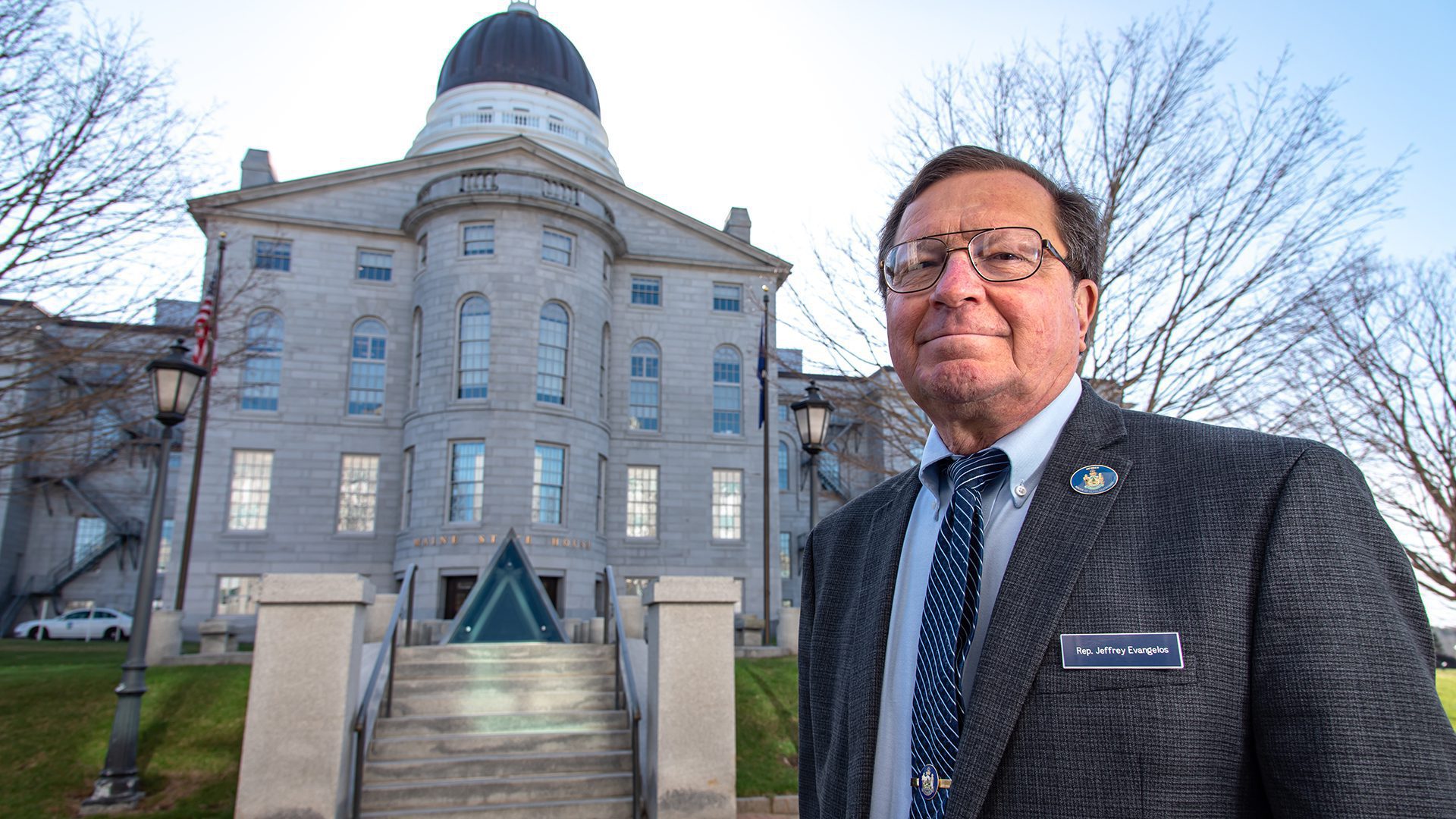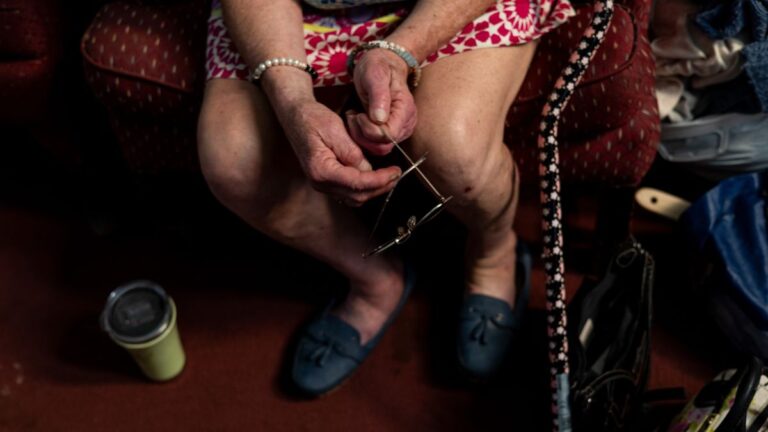If you’re sentenced to a long prison term in Maine, your chances of being released early are almost nil.
In 1976, Maine became the first state to abolish parole entirely, also doing away with the Executive Council, which once shared authority for pardons with the governor. Since then, sentence commutations, another form of early release, have been rare, perhaps non-existent.
Rep. Jeffrey Evangelos (I-Friendship), who’s sponsoring the first bill in nearly a decade that would restore parole, says the Department of Corrections cannot find any record of an inmate being released before the original sentence date, minus “good time” credits.
In some respects, Maine has a progressive corrections image. It is one of only two states – Vermont is the other – that has never restricted prisoner voting after release, and allows the incarcerated to vote. In theory, an inmate could even serve on a jury.
The original constitutional provision, that “Every citizen … of the age of 18 years and upwards … shall be an elector” still applies.
Yet when it comes to long sentences and no release provisions for prisoners who better themselves while incarcerated, Maine is a different place.
“Maine is a conflicted state,” said Evangelos. “We’re pastoral and peaceful in all the shots of the rockbound coast, but watch a couple of Stephen King movies and we change our minds.” The “Shawshank Redemption” – a film adaption of King’s 1982 novella set in the old state prison at Thomaston – “is so true to life it’s scary,” he said.
Evangelos said punishment for crime in Maine always has been harsh. “We’ve never funded the public defender system properly,” he said. “We fund the police and the prosecutors, but we do not fund the person’s right to defend themselves.”
Evangelos’ bill, LD 842, is scheduled for a hearing before the Judiciary Committee on April 22 at 9 a.m. No hearing has been announced for a constitutional amendment, LD 1187, to amend and limit the governor’s pardon powers, sponsored by Rep. John Martin (D-Eagle Lake), and assigned to the State and Local Government Committee.
Maine lags behind its peers
Maine’s parole policy has been noticed nationally. The Prison Policy Initiative (PPI), based in Northampton, Mass., gave the state an F- for its handling of parole, as it did for all the 16 states that, following Maine’s lead, abolished parole over the next generation, the last of them in 2000.

Wanda Bertram, the nonprofit’s communications strategist, said the outright abolition of parole “is the hallmark of the worst of the ‘tough-on-crime’ efforts” in states. Even in those that still have parole boards, it’s becoming rare to see releases. “Almost every state law is deeply flawed and needs to be fixed,” she said.
As an indication of a deep bias against release, Bertram cited a study conducted during the pandemic comparing parole releases from 2019 to 2020 in 13 states. “You’d think with all the widespread outbreaks of COVID in prisons and jails nationwide, you’d see a lot more prisoners being released,” she said. Instead, it was the opposite; the release rate went down sharply in most states.
For somewhat different reasons, Maine gets poor grades from the Collateral Consequences Resource Center. According to its executive director, Margaret Love, Maine ranks 39th in the organization’s Restoration of Rights Project, which focuses on post-sentencing issues that do not include parole.
That’s “below South Carolina, Mississippi, Kentucky and Oklahoma,” Love said – chiefly because it’s one of just two states, with Arizona, that has no provisions for sealing criminal records, including arrests that didn’t lead to convictions, no matter how long ago the offense took place.
“The only thing that saves Maine from an even worse rating,” Love said, is its “excellent voting law” and the “deferred disposition” programs used in some counties, which waive legal sanctions if certain release conditions are met, before any formal judicial proceedings take place.
A byproduct of a push to expand the governor’s powers
The “harsh” system Evangelos described was created by laws whose main purpose had little to do with pardons and parole.
Parole abolition was only one feature of a mammoth criminal code overhaul, funded through a federal grant, that went over the statute book from top to bottom; there’s been nothing similar ever since. One celebrated feature of the “recodification,” which eliminated crimes on the books since colonial days, was to make marijuana possession a violation “like a speeding ticket,” rather than a misdemeanor, as it remains in many states.
Eliminating parole was seen as a step toward “determinative sentencing,” at the time dubbed “truth in sentencing,” which meant those convicted served exactly as much time as their sentence mandated. Critics believe that in practice, Maine has abandoned any effort to rehabilitate those in state custody.
Rep. Charlotte Warren (D-Hallowell), House chair of the Criminal Justice and Public Safety Committee, is a co-sponsor of Evangelos’ bill and supports creating a new parole system. She asks, “Unless something changes, do we really have a Department of Corrections? Or is it just a Department of Punishment?”
The current pardon system is likewise a byproduct of the drive to abolish the Executive Council and enhance the governor’s powers. It came from a 20-year priority of Maine Democratic Party platforms that finally came to fruition after the 1974 election, when Democrats took the House majority and secured the two-thirds necessary for the constitutional amendment’s passage.
Although councils and governors both had to support them, early releases were not uncommon. That all changed when the governor assumed all authority, without any significant guidance.
Charlie Jacobs, a career state employee who as a young Democrat served in Gov. Ken Curtis’ office and was on the last Executive Council, said lawmakers’ attention was focused on how to adapt the confirmation authority for gubernatorial appointees – a role now shared by joint committees and the Senate. “Pardons just didn’t come up,” he said. “We didn’t give it much thought.”

Martin’s bill, which Jacobs helped design, would make two major changes to the state constitution.
One would create a statutory advisory board to recommend pardons, and require public reporting of its proceedings. At present, each governor can use whatever panel it wants.
The second change would forbid governors from issuing pardons during their last six months in office. That provision stems in part from a controversial pardon issued by Gov. Paul LePage to former Rep. Jeffrey Pierce (R-Dresden) in the final weeks of his administration.
According to Leonard Sharon, who chaired the advisory pardon board for 27 years, starting in the John McKernan administration, Pierce’s pardon was one of only two issued without a public hearing before the board – both by LePage.
Pierce had pleaded guilty to a felony drug charge more than 30 years earlier, when he was 19 – a fact raised by the Maine Democratic Party during the 2018 campaign in which Pierce was ousted by Democrat Allison Hepler of Woolwich.
In 2020, Hepler retained the seat, beating Pierce by a slightly larger margin.
Martin suffered a medical emergency in late March, underwent neurosurgery in Bangor and was unavailable for comment on his bill. But Jacobs said the principle objective was “to create a transparent public process, and make sure future governors are held accountable.” A public hearing would always be required.
Lindsay Crete, press secretary for Gov. Janet Mills, said Mills is reviewing both the Evangelos and Martin proposals, and expects to offer testimony on both.
Aside from the Pierce pardon, there’s been little controversy about most pardons issued by the last three governors. Angus King, John Baldacci and LePage, who all served eight years, issued comparable numbers of pardons, often for more than one offense.
King granted 154 pardons to 100 people; Baldacci issued 218 to 141 people; and LePage granted 240 pardons for 112 people. To date, according to Crete, Mills has issued eight pardons in her two-plus years as governor. No commutations have been recorded.
‘Do we believe in redemption or not?’
While criminal justice reform is much discussed, specific changes that would lead to shorter sentences or early release have not occurred on a wide scale.
In Virginia, where parole is rare, Gov. Ralph Northam proposed a substantial broadening last year. After paring down the possibilities to those who had served the longest sentences, often more than 40 years, the Legislature didn’t act, though the bill is on the docket again this year.
In Maine, attempts to restore parole have been infrequent, with 18 bills dealing with some aspect of the system filed over the past 30 years. A flurry of proposals came in the 1980s, when prison overcrowding led some lawmakers to see early release as a solution. That problem disappeared during the King administration when the 1,000-bed Maine State Prison in Warren was built.
Before Evangelos’ bill was filed, two proposals had been heard in 10 years, and both were overwhelmingly defeated.

What are the prospects for a different outcome this time? Charlotte Warren said Evangelos should not be underestimated. She describes him as a determined and persistent advocate who practices what he preaches.
Evangelos spends most Sunday afternoons at the Warren prison, where he speaks with inmates often serving life terms, who are enrolled in bachelor’s and master’s degree programs through the University of Maine at Augusta and other institutions. “I tell them it won’t do any good” in securing release, he said, “but they still want to do it.” One has a 4.0 grade-point average.
Evangelos’ focus on the parole bill comes out of his work with Brandon Brown, who was sentenced to 17 to 27 years for attempted murder and has served 12. Brown, who has a master’s degree, is also enrolled in a Ph.D. program at George Mason University, but will not be able to receive that degree while incarcerated.
Without parole as a possibility, Evangelos helped Brown build a compelling case for a commutation, including testimony from the man Brown assaulted, who now supports Brown’s release. After a six-hour public hearing, the advisory board made a confidential recommendation to Mills, who turned down the petition. Though there’s no provision for one, Mills’ former legal counsel, Derek Langhauser, heard an appeal from Evangelos, but the outcome didn’t change.
“If Brandon Brown doesn’t qualify for clemency, no one ever will,” said Evangelos. “Do we believe in redemption, or not? If it doesn’t make any difference whether you earn a college degree, or you sit in your cell and annoy the guards – if you end up serving the same time – how can we say we have a corrections system?”
His bill would make current and future prisoners eligible for a parole hearing if, for a sentence of 25 years or more, they served 20 years, including those now sentenced to life. For shorter sentences, they would have to serve half, as Brown has.
He doesn’t think, even if enacted, a parole system would help Brown: “By the time it’s set up and all the steps are taken, he’ll already have completed his sentence.
An uphill battle
Evangelos presented his bill on April 2 to the Criminal Law Advisory Commission (CLAC), an influential court panel that reviews all criminal justice bills proposed by legislators. The discussion showed what an uphill battle reform is likely to be.
Androscoggin, Oxford and Franklin County District Andrew Robinson said he supported the concept of parole, as did a defense attorney on the commission, Luke Rioux.
But Megan Elam, who prosecutes homicides for the Attorney General’s office, expressed strong opposition, calling the prospect of a new parole system “a massive wrench, an astounding change” that at best should go to an ad hoc study commission first.
She also expressed concern about seeing victims’ family members having to repeatedly testify before a parole board, essentially reliving the crime.
Bertram of the Prison Policy Institute said state systems can be designed to avoid those pitfalls. Some, for instance, do not consider testimony from the original prosecutors, or from family members. “The focus of parole is supposed to be on the person imprisoned,” she said. “Have they changed? Do they deserve a second chance?”
Bertram also said studies show a lower rate of repeat offenses among paroled prisoners than those released at the end of their sentences.
Sen. Susan Deschambault (D-Biddeford), as a CLAC member, sees both sides. At the beginning of a 40-year career in the Department of Corrections, she helped petitioners prepare for some of the last parole hearings held before abolition.
The system was less than rigorous. “If the warden liked you, you usually got your parole,” Deschambault said. “If he didn’t, it was back to your cell for another year.”
Yet the Thomaston prison had a full range of vocational programs, from auto body repair to cosmetology, where inmates could train for jobs on the outside. When parole was abolished, she said, “All those programs went away.” She said they’d have to be brought back for a new system to succeed.
Alan Kelley, a former state prosecutor and DA, said he sees nothing wrong with the current system, and that it works to keep the public safe.
Evangelos contends that public safety is not necessarily improved by extraordinarily long sentences. Two inmates he sees regularly were sentenced by different judges for a high-profile attempted murder in Pittston involving a home invasion. One, who testified against the other defendant, got a sentence of 50 to 90 years, while the other, who denied participating in the attacks, was given a life sentence – the first handed down under a 2001 statute creating a new felony of aggravated attempted murder.
At the CLAC meeting, Andrew Robinson recalled the words of a mentor in saying of prisoners, “Once you extinguish hope, you’ve given them no reason to rehabilitate themselves. Is that what we want to do?”







